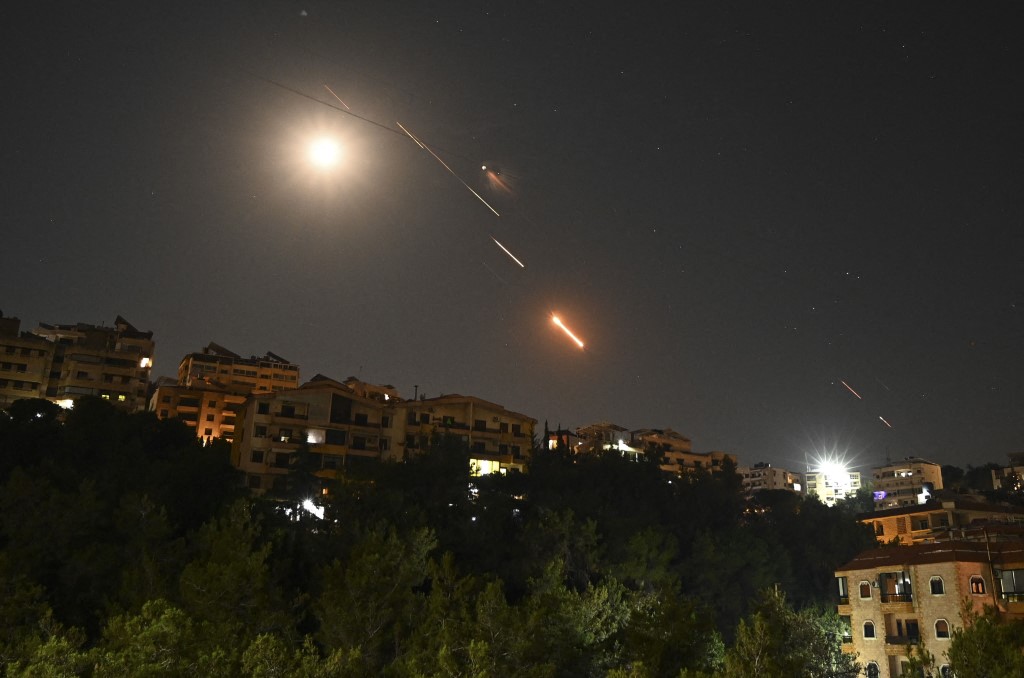June has always been a pivotal month in the calendar of conflict between Israel and the region, and Lebanon has consistently found itself entangled in its events.
On June 6, 1967, the so-called “Naksa” war erupted between Israel and Egypt and Syria, resulting in the occupation of the Sinai Peninsula, the West Bank, and the Golan Heights.
On June 7, 1981, Israel targeted the “Tammuz” (or Osirak) nuclear reactor near Baghdad—a move widely seen as the beginning of the end for the Baathist regime in Iraq, then embroiled in a war with Khomeini’s Iran and the Islamic Revolution.
On June 6, 1982, Israel invaded Lebanon under the banner of "Operation Peace for Galilee." This led to the expulsion of PLO leadership to Tunisia and, in time, to the emergence of "Hezbollah".
And now, on June 13, 2025—just six days after the 44th anniversary of the Osirak strike—Israel has redirected its sights toward Iran. Key infrastructure, facilities (some reportedly nuclear), and senior figures in the army and the Revolutionary Guard were targeted. Israeli officials confirmed U.S. support for the strikes, a reality hinted at by former President Donald Trump, who remarked that Iran had been given several chances to strike a deal in the Muscat nuclear negotiations.
The parallels between the 1981 “Operation Opera” in Iraq and yesterday’s operations in Iran are striking. Both countries posed, or pose, a nuclear threat to Israel. Both times, Washington and Tel Aviv coordinated closely: U.S. AWACS aircraft enabled Israeli planes to slip through Arab airspace in 1981, and since the October 7, 2023 “Al-Aqsa Flood War” and the subsequent “Support War,” the U.S. has provided Israel with all the weapons, technologies, and intelligence it needs to hit back at the so-called “Axis of Resistance.”
Furthermore, both Trump—under pressure in Los Angeles—and Israeli Prime Minister Netanyahu—battling crises at home—had incentives to greenlight military action against Iran to deflect attention from their internal woes. Perhaps they hope, too, that Tehran will soften its tone in Muscat, as Trump wished. Otherwise, this could mark the beginning of the end for Iran’s 46-year-old clerical regime—though this doesn't seem to be its final hour just yet.
So where does this leave Lebanon, as tensions erupt regionally and unpredictability reigns?
Lebanon continues to suffer from Israeli attacks in the South, the Beqaa, and the southern suburbs of Beirut—violations of the ceasefire signed on November 27. The country is still reeling from the “Support War,” and though the Lebanese state insists it alone holds the decision-making power on peace and war and that arms must remain with official forces, it remains entangled in the thorny issue of "Hezbollah"’s weaponry.
Given the current context and the very real possibility of a wider war between Israel and Iran, Lebanon’s leadership faces three difficult options:
Call a National Emergency Conference:
President Joseph Aoun—who cut short his visit to the Vatican—and the Prime Minister could convene all political actors to agree on a unified national stance, even if flawed. The idea is that Lebanon would face the consequences, come what may, as one nation. This would be a sound position.
Pursue Active Neutrality:
The government could reaffirm its neutrality in regional conflicts. Lebanon has long been a battleground for others to settle scores. The state must not allow any faction—whether out of ignorance, arrogance, or ideological fervor—to drag the country into catastrophe. This would be the safest path.
Ignore the Escalation:
Lebanon’s factions might downplay the dangers of escalation and focus on their usual internal squabbles, or worse, one party could act unilaterally and drag the country into a reckless military adventure.
Thankfully, "Hezbollah" does not appear to be among those seeking escalation. In a statement, the party condemned the Israeli assault on Iran and called for regional solidarity against the “criminal Zionist entity” and its U.S.-backed hegemonic ambitions. Notably, however, the statement made no reference—explicit or implicit—to any forthcoming military action in support of Iran.
Let us hope that the voices of those I like to call the “bald men flexing their cousin’s hair” do not rise to dominate the discourse—those who puff their chests with empty heroics, threaten and bluster, build castles in the sand, and daydream about seizing power. Not the real halls of power, of course—but those very sandcastles of illusion.
Please post your comments on:
[email protected]
 Politics
Politics







